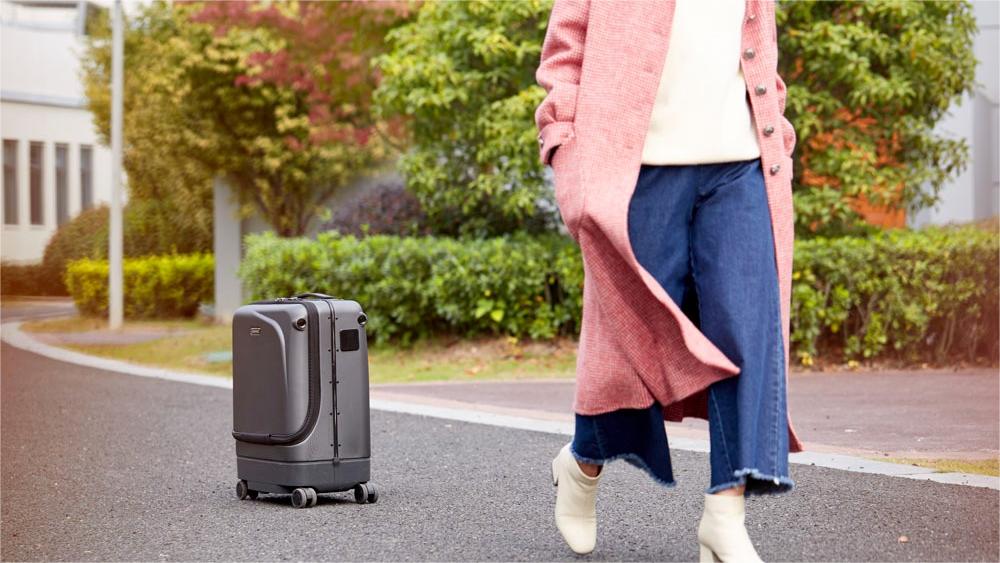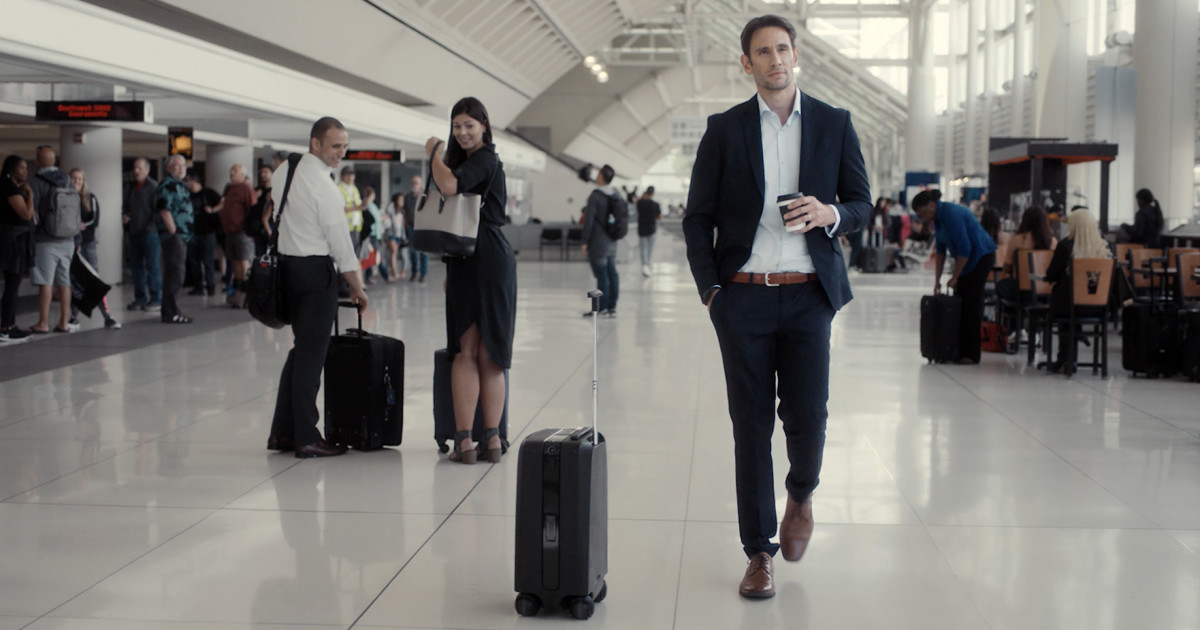Smart Luggage Revolutionizes Modern Travel


The Evolution of Travel Companion
In an era defined by technological integration, the most fundamental travel accessory—the suitcase—is undergoing its most significant transformation in a century. Smart luggage, once a novelty concept, has rapidly evolved into a sophisticated category of connected travel gear that addresses persistent traveler pain points while introducing unprecedented convenience and security. This revolution represents more than mere digital augmentation; it’s a fundamental reimagining of how we transport our belongings across the globe. From GPS-tracked bags that eliminate lost luggage anxiety to battery-integrated cases that keep devices powered throughout long journeys, intelligent luggage is reshaping the travel experience from the ground up. This comprehensive analysis explores the technological advancements, practical benefits, and evolving regulations defining the smart luggage landscape, providing travelers with essential insights into how these innovations can transform their journeys in our increasingly connected world.
A. The Technological Foundation: Core Features Redefining Luggage
Modern smart luggage incorporates multiple integrated technologies that collectively address longstanding travel challenges through innovative solutions.
A.1. Location Tracking and Recovery Systems
The single greatest anxiety for air travelers—lost luggage—is being systematically solved through advanced tracking technology.
-
Multi-Network Connectivity: Premium smart luggage now typically incorporates both GPS for outdoor positioning and Bluetooth for short-range location, with some models adding cellular connectivity for truly global tracking independent of smartphone proximity.
-
Geofencing Capabilities: Advanced applications allow travelers to establish virtual boundaries around their luggage, receiving immediate smartphone notifications if their bag moves beyond predetermined areas—particularly valuable during tight connections or in crowded transportation hubs.
-
Community Finding Networks: Several tracking systems leverage worldwide networks of other device users who can anonymously detect and report the location of missing luggage, dramatically increasing recovery possibilities even without airport staff involvement.
A.2. Integrated Power Solutions
The modern traveler’s dependency on electronic devices has made portable power an essential luggage feature rather than a luxury.
-
High-Capacity Battery Packs: Leading smart luggage models now incorporate removable batteries with capacities up to 20,000mAh—sufficient to charge multiple smartphones, tablets, or even laptops during extended travel.
-
Universal Charging Ports: Well-designed smart luggage features multiple USB ports (increasingly including USB-C), wireless charging pads, and sometimes even standard AC outlets to accommodate the full spectrum of traveler electronics.
-
Battery Management Systems: Sophisticated power management includes features like charge level indicators, optimized power distribution, and automatic shutoff to prevent overcharging or battery damage.
A.3. Enhanced Security and Access Control
Traditional luggage locks have evolved into integrated digital security systems that provide both protection and convenience.
-
Biometric Access: Fingerprint scanners and facial recognition systems are replacing traditional keys and combinations, providing both enhanced security and the convenience of keyless access while maintaining TSA compliance.
-
Digital Locking Mechanisms: These systems can be controlled remotely via smartphone applications, allowing temporary access codes for hotel staff or travel companions while maintaining a digital audit trail of all openings.
-
Tamper Detection and Alerts: Integrated sensors can detect unauthorized movement or forced entry attempts, immediately notifying the owner through connected smartphone applications while capturing relevant data.
B. The Practical Travel Benefits: Transforming the Journey Experience
Beyond technological novelty, smart luggage delivers tangible improvements to the travel experience across multiple dimensions.
B.1. Stress Reduction and Peace of Mind
The psychological benefits of smart luggage extend far beyond mere convenience.
-
Elimination of Baggage Anxiety: Real-time tracking information provides continuous reassurance about luggage location throughout the journey, from check-in to baggage claim.
-
Streamlined Security Interactions: TSA-approved locking systems and organized charging cable compartments reduce security checkpoint stress and processing time.
-
Enhanced Theft Protection: The combination of tracking technology, remote alerts, and robust digital locking creates multiple layers of security that significantly reduce theft vulnerability.
B.2. Operational Efficiency and Time Savings
Smart luggage introduces numerous small efficiencies that collectively transform the travel experience.
-
Elimination of Power Scarcity: Integrated power banks remove the need to hunt for available airport power outlets, allowing travelers to work or entertain themselves anywhere in the terminal.
-
Automated Baggage Information: Some airlines now integrate with smart luggage systems to automatically provide baggage status updates, eliminating the need to manually check flight information displays.
-
Quick Location Identification: Bluetooth-enabled location features help travelers rapidly identify their bag on crowded baggage carousels, saving time and reducing confusion.
B.3. Data-Driven Travel Optimization
The connected nature of smart luggage generates valuable information that can improve future travel decisions.
-
Travel Pattern Analysis: Some smart luggage applications analyze travel history to provide insights about frequently visited destinations, potential routing optimizations, and packing suggestions.
-
Baggage Handling Monitoring: Built-in sensors can record handling conditions including impacts, temperature extremes, and orientation data that could be valuable in case of damage claims.
-
Weight Distribution Feedback: Integrated weighing systems help travelers optimize packing to avoid overweight baggage fees while maintaining balanced weight distribution for easier maneuvering.
C. Regulatory Landscape and Travel Compliance
The integration of electronics into luggage has necessitated new regulations and compliance considerations that travelers must understand.
C.1. Airline Battery Regulations
The most significant regulatory consideration for smart luggage involves integrated power sources.
-
Removable Battery Requirements: Major airlines universally require that lithium batteries in smart luggage be removable, allowing baggage to be checked without its power source if necessary.
-
Capacity Limitations: Most airlines restrict battery capacity to approximately 100 watt-hours, with some allowing larger units up to 160 watt-hours with advance approval.
-
Carry-on Considerations: Even with removable batteries, airlines typically prefer smart luggage with power sources to be carried onboard rather than checked whenever possible.
C.2. International Travel Considerations
Regulatory variations across international boundaries create additional complexity for smart luggage users.
-
Differing Airline Policies: While general principles are consistent, specific smart luggage policies vary between airlines and particularly between international carriers, requiring verification before each journey.
-
Security Screening Variations: Some countries’ security agencies may subject smart luggage to additional screening or have different requirements regarding locking mechanisms and electronic components.
-
Frequency Band Compatibility: Location tracking technologies must accommodate different frequency allocations and regulations across countries to ensure global functionality.
C.3. Future Regulatory Evolution
The regulatory environment continues to adapt as smart luggage technology evolves.
-
Standardization Efforts: Industry groups are working to establish universal standards for smart luggage safety and interoperability to simplify the travel experience.
-
Airline Integration Development: Some carriers are exploring deeper integration with smart luggage systems for improved baggage handling and customer communication.
-
Security Protocol Evolution: As digital locking systems become more sophisticated, security agencies are developing corresponding inspection protocols that maintain security while preserving functionality.
D. Market Landscape and Product Differentiation
The smart luggage market has matured to offer diverse products targeting distinct traveler segments and needs.
D.1. Product Categories and Specializations
Smart luggage now encompasses multiple specialized categories beyond generic connected suitcases.
-
Business Travel Focus: Products targeting business travelers typically emphasize professional aesthetics, robust power solutions for multiple devices, and organization systems for documents and technology.
-
Adventure and Outdoor Orientation: These designs prioritize durability, specialized tracking capabilities for remote locations, and power systems optimized for outdoor electronics like GPS units and satellite communicators.
-
Family Travel Solutions: Family-focused smart luggage often includes features like integrated child tracking, entertainment system power, and expanded capacity for family travel necessities.
D.2. Price Segmentation and Value Propositions
The market accommodates various budget levels while maintaining core smart functionality.
-
Entry-Level Smart Features: Budget options typically focus on single core features like basic Bluetooth tracking or simple USB charging ports without integrated batteries.
-
Mid-Range Comprehensive Solutions: The most competitive segment typically includes multiple smart features like GPS tracking, removable batteries, and digital locking at moderate price points.
-
Premium Integrated Systems: High-end offerings incorporate advanced materials, luxury aesthetics, and comprehensive technology integration including features like weight sensors, environmental monitoring, and premium companion applications.
D.3. Emerging Innovations and Future Directions
The smart luggage category continues to evolve with increasingly sophisticated features.
-
Automated Mobility: Several prototypes demonstrate self-propelled luggage that follows owners through airports, though regulatory and practical implementation challenges remain significant.
-
Biometric Integration: Beyond simple locking, some concepts incorporate biometric sensors that could monitor traveler stress levels or vital signs during journeys.
-
Contextual Awareness: Experimental systems are developing luggage that can adjust its behavior based on context—automatically locking in crowded areas or providing navigation assistance in complex terminals.
E. Implementation Strategy: Maximizing Smart Luggage Benefits
Successful integration of smart luggage into travel routines requires strategic consideration and adaptation.
E.1. Selection Criteria and Feature Prioritization
Choosing the right smart luggage demands careful assessment of individual travel patterns and needs.
-
Travel Pattern Analysis: Frequent flyers versus occasional travelers have dramatically different needs regarding battery capacity, durability, and feature complexity.
-
Device Ecosystem Compatibility: Smart luggage should complement the traveler’s existing technology ecosystem, with particular attention to charging standards and application integration.
-
Airline Compliance Verification: Before purchase, travelers should verify that their preferred smart luggage meets the requirements of airlines they frequently use, particularly regarding battery specifications.
E.2. Integration into Travel Workflow
Maximizing smart luggage benefits requires adapting travel habits to leverage new capabilities.
-
Pre-Travel Preparation: Smart luggage typically requires specific preparation like battery charging, application installation, and feature configuration before first use and each journey.
-
Airport Procedure Adaptation: Travelers must adjust airport routines to accommodate security screening of electronic components and battery removal procedures when checking bags.
-
Charging and Maintenance Routines: The electronic components in smart luggage create additional maintenance requirements including regular charging, software updates, and system checks.
E.3. Cost-Benefit Analysis and Value Assessment
The premium pricing of smart luggage necessitates careful evaluation of its tangible and intangible benefits.
-
Loss Prevention Value: The potential to avoid the substantial cost and inconvenience of lost luggage represents significant financial value for frequent travelers.
-
Productivity Enhancement: The ability to maintain device functionality throughout extended travel can generate professional value that offsets initial investment.
-
Psychological Benefit Consideration: The reduction of travel stress and anxiety provides meaningful quality-of-life improvements that many travelers find justifies the additional expense.
Conclusion: The Inevitable Smart Future of Travel Gear
The rapid adoption and continuous innovation in smart luggage signals a permanent transformation in how travelers interact with their most essential travel accessory. What began as novel gadgets has evolved into sophisticated travel companions that genuinely enhance security, convenience, and peace of mind. As the technology matures, prices moderate, and regulations standardize, smart features will likely become expected standards rather than premium differentiators across the luggage industry. The ongoing integration of connectivity, power, and intelligence into luggage represents more than a product category—it’s a fundamental reimagining of the travel experience itself. For modern travelers navigating increasingly complex journeys, smart luggage has evolved from luxury indulgence to strategic tool, transforming the humble suitcase from a passive container into an active partner in the travel experience.
Tags: smart luggage, connected travel, GPS tracking luggage, travel technology, baggage innovation, portable charger luggage, Bluetooth tracker, travel gadgets, lost luggage prevention, digital luggage, TSA approved locks, travel convenience






